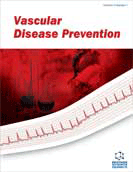Abstract
The association between depression and vascular disease has been well described but our understanding of the relationship between the two disorders and of the clinical implications of their interactions is limited. Evidence suggests that vascular disease can cause depression. The vascular depression hypothesis proposes that vascular disease predisposes to, precipitates, or perpetuates depression. On the other hand, there is a growing body of evidence that depression significantly and adversely affects cardiovascular health. Although many cardiology organizations do not currently list depression among the officially recognized cardiac risk factors, many behavioral medicine specialists believe depression to be an important risk. Research has demonstrated a gradient relationship between depression and the risk of cardiovascular events among both healthy individuals and those with known cardiac disease. A prognostic role for the presence of depression and the onset and recurrence of vascular disease has been largely supported. Depression also increases the likelihood of the incidence of vascular risk factors such as diabetes. The relationship between depression and vascular disease is complex and multifaceted. Proposed explanations of the association of depression and vascular disease include: 1) that the occurrence of vascular disease has a direct influence on the incidence of depression; 2) that depressive disorders have a direct impact on the vascular system; 3) that depression and vascular disease share a common pathophysiological process or processes predisposing an individual with one disorder to experience development of the other; and 4) that depression and vascular disease may share some genetic determinants. This review considers the current opinions regarding the relationship of depression and vascular disease, and discusses the clinical implications of these relationships.
Keywords: Depression, vascular disease, cerebrovascular disease, cardiovascular disease, risk factors, prognosis, pharmacological treatment, nonpharmacological treatment


